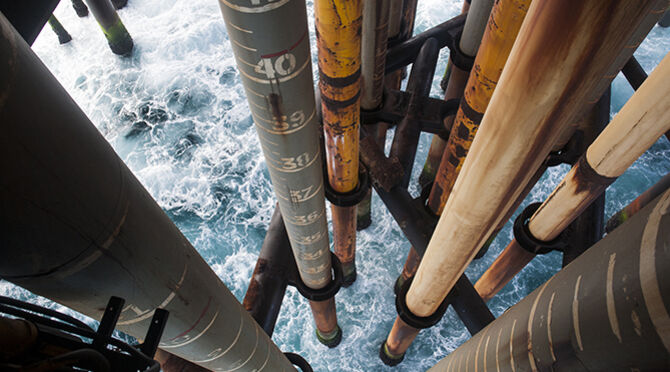Ineos buys Forties Pipeline amid decommissioning warning
Chemicals company Ineos has bought the Forties Pipeline System in the North Sea from BP for $250 million. The agreement gives Ineos control of almost 40 per cent of the UK's North Sea oil and gas.

A strategic UK asset
Jim Ratcliffe, Ineos chairman, said, “The North Sea continues to present new opportunities for Ineos. The Forties Pipeline System is a UK strategic asset and was originally designed to work together to feed the Grangemouth refinery and petrochemical facilities.“We have a strong track record of acquiring non-core assets and improving their efficiency and reliability, securing long-term employment and investment.”John McNally, Ineos transition manager for the deal, dismissed fears that the takeover would result in redundancies among the pipeline's 300-strong workforce and said the company was also looking at potential further acquisitions.Redundancy fears
“This is the next step in a strategy of going into North Sea assets, it's not the last step, so watch this space. We're always looking for good acquisition opportunities,” he said. “We absolutely have no plans for redundancies.“We think it is highly-skilled jobs that we want to keep and we want to work with that team and see how do we actually invest to maximise the value of the business going forward. Investment is what we want to do now and investment often comes with jobs. So, those two could go hand-in-hand.“We want to maximise the value of the Forties Pipeline System, we want to extend the economic lifetime of the system as far as possible, so that's a great story for securing longer-term jobs.”Decommissioning in the North Sea
The deal coincided with publication of an article by Eric Oudenot, an oil and gas analyst and a principal at the Boston Consulting Group (BCG) in London, in which he warned decommissioning in the North Sea could end up costing at least $100 billion.“And the bill could double or even triple depending on decisions oil and gas operators make now. Shareholders, employees, suppliers, governments, and taxpayers are all on the hook for the tab,” he wrote.“The problem is the decommissioning of oil and gas wells and installations, many of which are more than 30 years old. The task is huge. In the Gulf of Mexico, the industry took more than 1,000 structures out of service from 2010 through 2014 at a total cost of $9 billion. The US Government Accountability Office estimates continuing decommissioning liabilities in the Gulf at an additional $38 billion.“Now it’s the North Sea’s turn (which involves the UK, Norway, the Netherlands, and Denmark).”Related news:
- Confidence returning to oil and gas recruitment
- Billion barrels of oil discovered in UK offshore fields
- AMEC takeover boosts Wood Group North Sea business
Mr Oudenot said platform size and complexity of North Sea rigs and systems, in addition to the physical and regulatory environment, make decommissioning a complex and difficult challenge.He said current North Sea decommissioning estimates cover removing more than 500 fixed installations and more than 500 subsea production systems, and plugging and abandoning more than 10,000 wells.“Operators face the greatest costs and risk, but there are ramifications for everyone. Handled improperly, decommissioning can cause a production domino effect as old platforms and pipelines are scrapped, cutting off neighbouring facilities and smaller reservoirs that are yet to be developed.“Employment will be affected; oil and gas upstream operations support some 330,000 jobs in the UK alone. National tax laws mean that taxpayers are on the hook for 50-80 per cent of decommissioning costs, depending on the country, a prospect unlikely to go down well either at kitchen tables or in government offices.“For many North Sea operators, an intense period of decommissioning activity is about to ramp up, even as they struggle to get their arms around their commitments. While it is still early days, operators are exhibiting big differences in approach and cost“Many operators have some form of decommissioning strategy in place, but few so far have brought all their assets, business units, and global operations together under a single vision and execution roadmap. As a result, they fail to take into account such factors as timing, well proximity, and talent deployment, and they can overlook lessons learned, all of which can be costly in terms of inefficiency, poorly allocated resources, and missed opportunities.”For related news and features, visit our Enterprise section.Access hundreds of global services and suppliers in our Online Directory
 Get access to our free Global Mobility Toolkit
Get access to our free Global Mobility Toolkit 
©2025 Re:locate magazine, published by Profile Locations, Spray Hill, Hastings Road, Lamberhurst, Kent TN3 8JB. All rights reserved. This publication (or any part thereof) may not be reproduced in any form without the prior written permission of Profile Locations. Profile Locations accepts no liability for the accuracy of the contents or any opinions expressed herein.






































